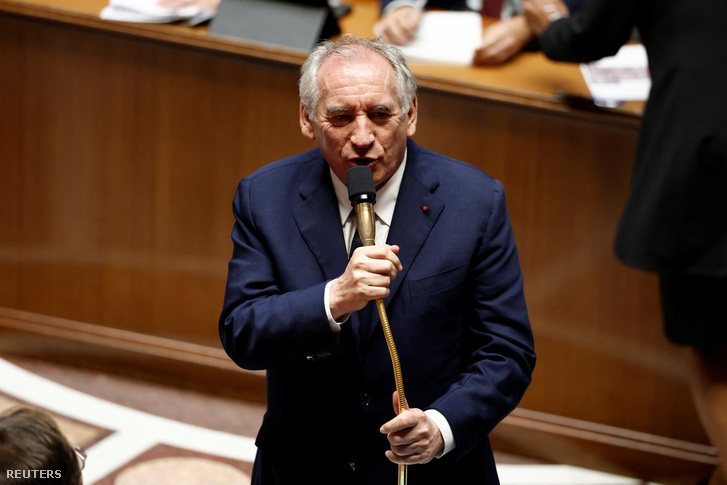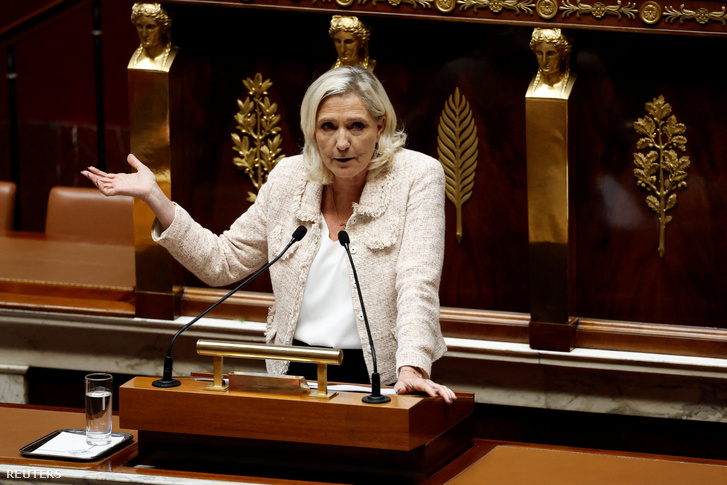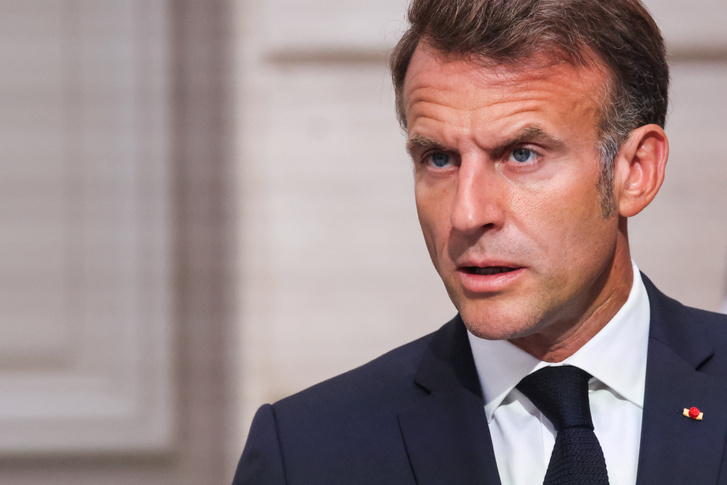On Monday, September 8, the French National Assembly held an extraordinary session to debate the motion of no confidence filed by centrist Prime Minister Francois Bayrou against his own government.
The French Prime Minister announced at the end of August that he would initiate a no-confidence motion on his budget plan, which has been controversial for months and rejected by opposition parties. In it, the Prime Minister plans drastic spending cuts to reduce the state debt and budget deficit that have been growing continuously for years. As could be expected in advance
The motion of no confidence was ultimately accepted by a majority of 537 MPs, 364, thus the National Assembly brought down the government of Michel Barnier's successor.
This also means that the third prime minister in France has failed in 15 months, and four during French President Emmanuel Macron's second term starting in 2022.
Élisabeth Borne resigned in January 2024 at Macron's request over an immigration law, and her successor, Gabriel Attal, resigned after the 2024 European Parliament elections, after his Macronist Renaissance party suffered a humiliating defeat in the elections. Then came Michel Barnier, who was ousted by the National Assembly after 90 days in office, just as Bayrou was now ousted, over his budget plan.
Bayrou's government, which does not have a parliamentary majority, has previously survived seven no-confidence motions, but it will not survive the one now filed against it. The Prime Minister's budget draft contains cuts that other political parties do not want to take credit for, and Bayrou - who, according to press reports, also has presidential candidate goals in the 2027 presidential election - has handed over the political burden of the budget deficit and the ever-growing public debt to the parties that brought him down.
Bayrou and his representatives attacked the opposition, the opposition attacked Macron
Prior to the vote, a debate was held in the National Assembly on the motion of no confidence submitted and ultimately voted against by the Prime Minister, the main topic of which was, not surprisingly, Bayrou's budget proposal and the French political crisis, which can now be considered the new norm.
The Prime Minister spoke first, and spoke for nearly forty minutes. He began his speech by saying that he had initiated the motion of no confidence because he wanted the moment of truth to come. According to him, many people think that he was taking an unnecessary risk by doing so, but in his opinion, the real risk would have been to do nothing and let things continue as they have been.
According to Bayrou, France is addicted to debt, governments and politics are constantly borrowing and financing the country with debt.
He said that at the moment the public debt is 3,415 billion euros, which is increasing by five thousand euros every second. At the end of 2024, the public debt stood at 113.2 percent of annual GDP, while the budget deficit was 5.8 percent - for this reason, the European Commission launched an excessive deficit procedure against France in the summer of 2024, which was later technically suspended.
Our country is functioning, people think it is getting richer, but every year it is getting poorer. Ladies and gentlemen, this is a silent, underground, invisible and unbearable hemorrhage
– said the Prime Minister during the debate, arguing throughout his speech that a fiscally conservative budget is needed and that the national debt and budget deficit must be reduced before it becomes unmanageable. For this reason, he called on the parties to support his budget aimed at reducing debt and to act without delay.
According to him, politicians have violated the trust contract between generations by continuously increasing the debt, the burden of which will be borne by later generations. Moreover, according to him, the national debt has increased not because it would have been spent on the development of the country, but to cover the costs of everyday life. According to him, debt is pushing younger people into servitude.

In his speech, Bayrou rejected the seemingly simple solution of simply increasing taxes on the richest, saying it would cause billionaires to leave France, which would have a negative impact on the economy. However, he concluded by saying that work would need to be done to find ways for those with higher incomes and wealth to participate in reducing the debt.
Ladies and gentlemen, you have the power to overthrow the government, but you do not have the power to erase reality. The expenses and the debt, which are already unbearable, will continue to increase, becoming more and more severe
– said Bayrou, who said that today's vote is also a moment of truth because each representative must face their own responsibility, even if they may find it more convenient to ignore the debt. Finally, he concluded his speech by saying that he believes in the common minimum and compromise, and asked the parties to work together to solve the problem.
However, it seemed that this would not be the case even before the vote, as each party criticized the Prime Minister or even President Emmanuel Macron.
Socialist Boris Vallaud, for example, has said that only one person is responsible for the current political crisis, Macron, whom Bayrou blindly followed as prime minister. Bayrou's budget plan, he says, would be a disaster for France: it would wipe out one of the lowest economic growth rates in Europe, while the austerity measures would reduce already sluggish purchasing power and increase unemployment.
According to Vallaud, Bayrou's budget plan is a strangulation of public services, which would only bring more crises. The president of the Socialists, who previously supported the prime minister from the outside, emphasized at the end of his speech that they are ready to govern with other left-wing parties.
The presidents of the other left-wing factions also highlighted the austerity of Bayrou's budget proposal, saying that cutting social spending would only make the poor and the working class even more difficult. Stéphane Peu, president of the Democratic and Republican Left, has already called on Macron to ask for a left-wing prime minister after Bayrou's fall, since the left has the most representatives among the three political blocs in parliament.
In contrast, Bayrou's right-wing and far-right opposition has mostly attacked Macron. This was also the case with Eric Ciotti, the leader of the UDR faction, who says Bayrou is a pyromaniac firefighter who would rather get himself overthrown than resign in order to launch his presidential campaign, which he believes the prime minister has no chance of winning anyway.
According to Ciotti, the debate should not be about Bayrou, but about Emmanuel Macron, since he believes the French president is responsible for the political crisis.
The leader of the far-right National Rally faction, Marine Le Pen, also followed the same line of thought. The faction leader, who was recently convicted of misconduct, also hinted that she thought Macron should resign, but she mostly focused her speech on the fact that she thought parliament should be dissolved.
According to Le Pen, Macron would not have an option but an obligation to dissolve parliament.
The leader of the far-right party, currently leading in opinion polls, promised that the National Rally would continue to be constructive in its approach to parliamentary work, but would not follow the “fiscal and migration madness” that Macron and his prime ministers were pursuing. Le Pen concluded her speech by saying that change cannot wait.

In contrast, the leaders of the pro-government factions, like Bayrou, attacked the opposition for working towards the politically difficult but absolutely necessary debt reduction, rather than to overthrow the government.
This was discussed, for example, by Paul Christophe, the chairman of the Horizon and Independents faction, who said that there is no such thing as a"miracle budget" that everyone is satisfied with, and that the level of public debt has reached worrying levels that should be addressed immediately, and that the time wasted today will be paid for tomorrow, and ultimately by their children.
He also accused the opposition of only blocking the functioning of the country and the National Assembly instead of governing, while not promising anything concrete.
And then, France?
After the no-confidence motion against the government was accepted, Bayrou will soon officially resign from his post as Prime Minister and will serve as caretaker Prime Minister until a new Prime Minister is appointed.
After the fall of the government, Macron has three options: first, as after the fall of Barnier, he can appoint a new prime minister who would still have to maneuver within the National Unity divided between the three blocs, which did not entirely work out for Barnier and Bayrou either.

He could also decide to dissolve parliament and call new elections, after which he could hope that a new parliament would no longer be so divided and that the future prime minister would have a clear parliamentary majority.
The last time the president made such a decision was after the 2024 EP elections, but his party, which was already in a minority at that time, found itself in an even worse position. Moreover, the support of the forces supporting Macron has been steadily declining since then, while Le Pen's party continues to comfortably lead the polls, so this is not the most likely scenario, as Macron's party would only perform even worse in a new election.
However, this is the least likely, as the French president has previously expressed his dissatisfaction with the fact that the constitution only allows someone to hold the position of president for two terms - on this basis, it is unlikely that Macron would leave the Élysée Palace before the presidential election due in 2027. Especially since the head of state, who was first elected in 2017, has not yet found a possible successor.

